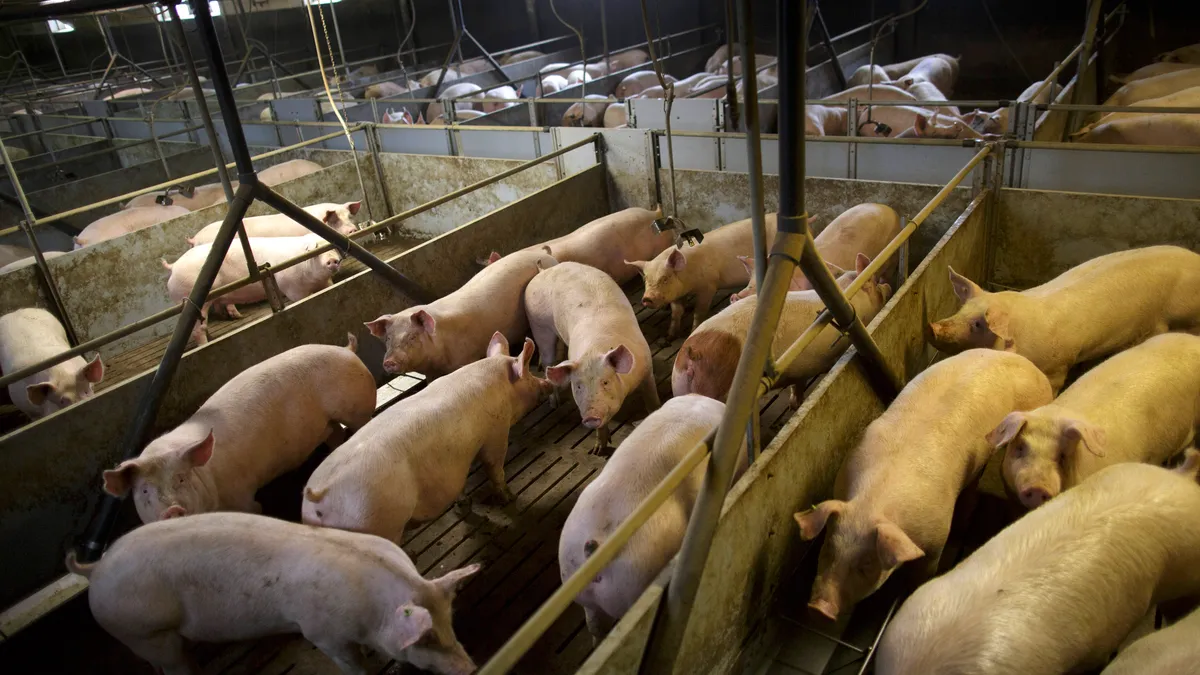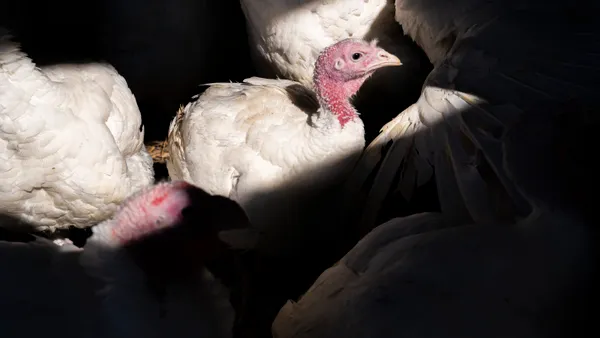Dive Brief:
- U.S. senators last week filed a proposal to prohibit states from enacting laws that affect agriculture production in other states, an attempt to reverse a Supreme Court decision on California’s Proposition 12 and similar legislation setting requirements for how meat should be processed.
- The Ending Agricultural Trade Suppression Act would prevent states from implementing laws that interfere with the production and distribution of agricultural products in interstate commerce. The proposal also paves the way for companies to seek damages and overturn current legislation impacting production.
- The bill, sponsored by 10 Republican lawmakers, is the latest attempt to challenge Prop 12, which bans the sale of pork from farms that raise pigs in gestation crates — including farms outside the state of California.
Dive Insight:
The Supreme Court upheld Proposition 12 in a 5-4 ruling last month. Pork industry advocates have challenged the law ever since it was approved by 63% of state voters in 2018, arguing that it would only lead to increased food and production costs.
“The United States is constantly faced with non-tariff trade barriers from protectionist countries, hurting American agriculture’s access to new markets," Kansas Sen. Roger Marshall, one of the bill's sponsors, said in a news release. "The last thing we need is a big state like California imposing its will on ag-heavy states like Kansas with regulations that will also restrict our ability to trade among the states.”
About 15% of U.S. domestic pork sales currently go to California, according to the National Pork Producers Council. Under the new regulations, sows are required to have at least 24 square feet of floor space, which could require millions of dollars in investments from farmers looking to be compliant. According to a University of Minnesota study, it would cost between $1.9 billion and $3.2 billion to convert sow barns to group pens industry wide.
So far, nine states in addition to California have passed laws that restrict the use of animal gestation crates for hogs, including Arizona, Colorado, Florida, Maine, Massachusetts, Michigan, Ohio, Oregon and Rhode Island. According to the U.S. Department of Agriculture, most of these states each produce less than 1% of total U.S. pork output.
Republican Rep. Ashley Hinson of Iowa is expected to file a companion bill to the EATS Act in the U.S. House of Representatives. The Senate bill introduced on Thursday was referred to the Senate Committee on Agriculture, Nutrition and Forestry for further consideration.
Sponsors of the EATS Act tried to pass a similar bill in 2021, prior to the Supreme Court’s Proposition 12 ruling, to no avail. Before that, former Republican Rep. Steve King of Iowa had for years pushed similar legislation known as the Protect Interstate Commerce Act, which targeted California’s housing requirements for egg laying hens.
Animal Wellness Action are among activist groups opposed to the bill, saying in a statement the measure erodes states' rights and is “ill-considered, anti-democratic legislation.”
While Republicans try to find workarounds to California’s new pork laws, major meatpackers are adjusting their operations in response. Last year Smithfield said it would close one of its plants in Vernon, California, and reduce its sow herd in the western region due to the “escalating cost of doing business" in the state.











